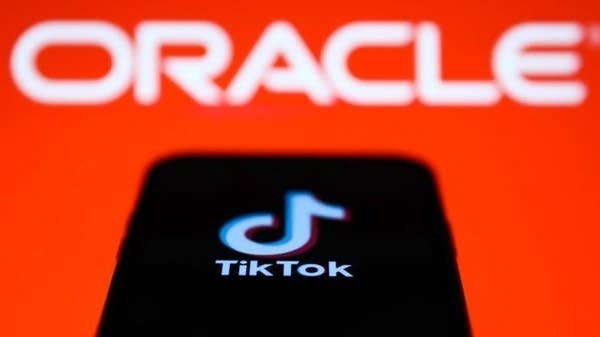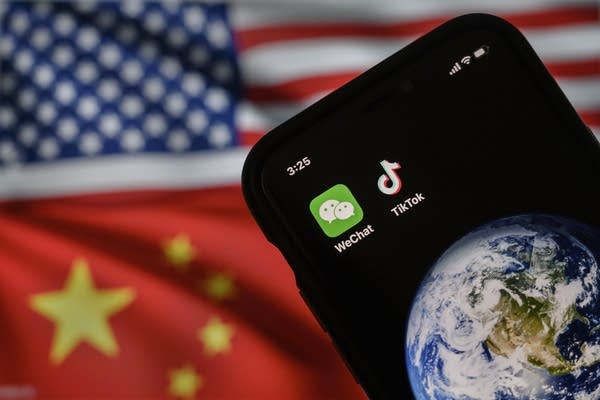Amazon controls nearly half of the market; Oracle has less than 3%.

Details of the proposed deal for Walmart and Oracle to take a stake in Chinese company TikTok are still unfolding. But what is clear is that part of what’s in it for Oracle would be a new customer for its cloud computing business. The company has just under 3% of the global cloud computing market, according to research firm Gartner. Compare that with Amazon Web Services, or AWS, at 45%. The next biggest provider is Microsoft, with an 18% share.
I spoke about the cloud competition with Eric Norlin, a venture capitalist with SK Ventures. He says nabbing TikTok is part of a bigger strategy. The following is an edited transcript of our conversation.

Eric Norlin: I’d put it in the class of partnership deals that are done to generate a higher profile, more than the class of deals that are actually about generating revenue in business. It’s not the deal itself, in terms of revenue, that is important so much as it is the PR around the deal.
Amy Scott: So it raises Oracle’s profile?
Norlin: Yes. I think in Oracle’s case, specifically, you’re dealing at the higher end of the cloud infrastructure market with the dominant player in AWS, obviously, and then Microsoft doing a really admirable job, I think, with developer communities and what they’re doing. And then Google and Oracle kind of slugging it out below that for the higher-end deals. Oracle’s really been on the downside of that spectrum, in terms of landing high visibility deals. So from that standpoint, they really needed something like this to kind of help them at least gain visibility.
Scott: When you’re advising startups that you invest in, do you ever suggest that they switch cloud computing providers? I’m wondering if there’s a lot of difference between them.
Norlin: No, I’ve never actually advised anyone to do that. I don’t believe my partner has either. One of the hardest problems with cloud infrastructure is that once you begin to build significantly on it, you really do get locked in, even if there’s technically a way for you to move. I think we’ll see templated cloud architectures and the ability to move between providers become something that will gain in popularity. And of course, some of the larger businesses are insisting on going “multi-cloud” from the beginning, so that their infrastructure isn’t solely dependent on one provider.
Scott: We saw that during the pandemic, right, companies realizing they need to diversify?
Norlin: Yeah, absolutely. It’s funny you bring up the pandemic. I was just mentioning the other day the kind of the great, untold story of the pandemic is actually the work that Adrian Cockcroft did 10 years ago. Adrian was the architect in charge of Netflix’s original streaming service. So he did a lot of work around what’s called chaos engineering [or] dynamic resource scaling about a decade ago, and really kind of revolutionized how people approached architecting cloud services. And I’m pretty convinced that without the work Adrian did 10 years ago, that we wouldn’t be scaling things like Zoom today.
Scott: Well, in terms of how Amazon, or AWS, got so dominant, are there services that they provide that are better? I mean, part of their footprint —does that help startups that are associated with them?
Norlin: I think it’s a matter of the size of the ecosystem that they’ve built, not necessarily better or worse. So depending upon what you’re trying to accomplish, you can accomplish the exact same thing with alternative cloud providers — the smaller ones, the midsize ones, other big name ones. But the advantage at this point that Amazon’s bringing is they bring this whole ecosystem of startups and other companies building on top of what they’re offering. And then they’re rolling out so much in new features, new services, new offerings every year. It’s volume, and then I think the weight of the ecosystem that they bring, where they really start to distinguish themselves in offerings. But I don’t think there’s necessarily a difference in quality. You can certainly accomplish everything on other platforms that you can accomplish there or through stringing together platforms and other services.
Scott: What do you think it would take to see a more level playing field in this market, with two companies really dominating and everybody else in the single digits? Do you see changes that could expand that field?
Norlin: It’s kind of fashionable, I think, in certain tech circles these days to whisper nefarious things about antitrust and AWS. I actually don’t think that’s how the change comes about here. We will reach a point of saturation with cloud, and then we’ll have some sort of boom-bust cycle that leads us through the desert. And on the other side of that desert is an offering that everyone laughs at, at first, that changes the world and alters the cloud landscape. I think that over time, the predominance of AWS has to come down because that’s what always happens.

The Wall Street Journal had a story last week on Microsoft’s strategy to woo more customers to its cloud services by promising those companies more customers of their own. For example, Microsoft clinched a deal to provide cloud services to the company Abnormal Security and in turn will sell Abnormal’s services to Microsoft’s own big clients. It’s a tactic that’s been used by Amazon, too, and obviously one where it helps to have a relatively big portfolio of companies you’re already working with. So, not something newcomers to the cloud space can hope to compete with.
Speaking of companies diversifying their cloud providers, one of them is Zoom, which originally relied totally on Amazon. But this spring, when the company saw exponential growth in demand — we all know why — Zoom said it wanted more support, so it hired Oracle.
Around the time of the announcement, CNBC reported that one of the reasons Zoom chose Oracle instead of, say, Microsoft or Google is that those companies also provide video conference services and were moving more aggressively to compete with Zoom. So, it didn’t really want to help fund those efforts.